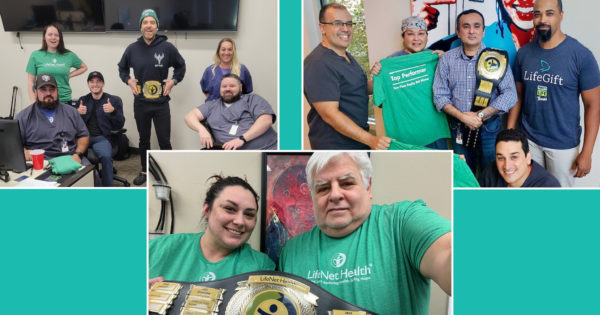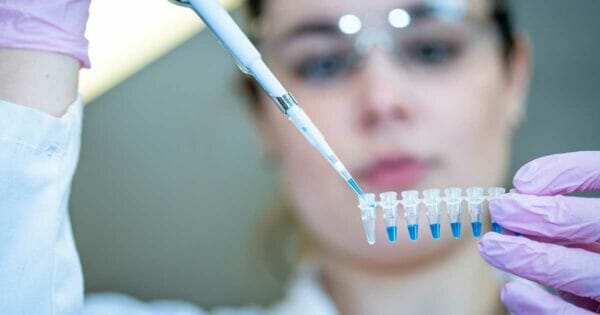Una Segunda Oportunidad de Vida/A Second Chance at Life
February 18, 2022
To bring additional insight to the tremendous benefits of organ transplantation, LifeGift collaborated with La Prensa Houston to share a heart transplant recipient’s personal journey. The article features 30-plus-year heart recipient and Ambassador of Hope volunteer, Randy Creech and LifeGift’s manager of organ clinical operations southeast region, Javier Nieto, MD. The article is presented in Spanish, but a full English translation is also shared below.
La salud cardiovascular es de suma importancia y los latinos son uno de los grupos más afectados.
El corazón es vital para vivir, sin embargo, es uno de los órganos más descuidados a pesar de su importancia, por eso desde 1963 en Estados Unidos el mes de febrero es dedicado a la salud cardiovascular para poder crear conciencia en la comunidad.
El debate si la alta presión sanguínea, es un problema del corazón es algo del cual los expertos aún no llegan a un acuerdo, pero en lo que sí están en unión, es que el tener alta presión sanguínea puede causar problemas de corazón muy serios, si no se trata a tiempo.
Según estadísticas, 1 de cada 4 hispanos tiene presión arterial alta, que puede ser un precursor de un ataque al corazón, derrame cerebral, enfermedad renal o insuficiencia cardíaca.
Cardiovascular health is of paramount importance and Latinos are one of the most affected groups.
The heart is vital to live, however, it is one of the most neglected organs despite its importance, so since 1963 in the United States the month of February is dedicated to cardiovascular health to raise awareness in the community.
The debate whether high blood pressure is a heart problem is something that experts have not yet agreed on, but what they are in union on is that having high blood pressure can cause very serious heart problems, if not treated in time.
According to statistics, 1 in 4 Hispanics has high blood pressure, which can be a precursor to a heart attack, stroke, kidney disease or heart failure.
The most common heart problems are: coronary heart disease, angina pectoris, myocardial infarction, arrhythmia and congenital heart conditions. If the conditions are serious enough, it may require a heart transplant, as happened to Randy Creech.
It all started with a routine physical exam, the doctor noticed an irregularity in Creech’s heartbeat and sent him an electrocardiogram (ECG).
After several tests it was determined that his heart was losing efficiency due to a viral infection, the damage to his heart was so severe that the only thing that could save his life was a heart transplant.
Creech expressed the anguish of being on a waiting list to receive a transplant, a list he was on for 6 months, waiting for a compatible heart.
His heart transplant was more than 30 years ago and since then Creech has become a supporter of heart health, as well as a spokesman on organ donation, as he knows how difficult it is to wait for an organ and knows how difficult it is to know where most organs come from. Someone must die for someone else to have a second chance at life.
Creech remembers the long-awaited call that brought him happiness and sadness at the same time. “Mr. Creech we have a heart for you, a 19-year-old has died in Amarillo and that heart matches you.”
Hard to find
The disparity of organ recipients and donors is significant among Latinos. Minority communities typically wait longer on the national organ transplant waiting list to receive a life-saving gift, because there aren’t enough donors within their own communities.
According to the U.S. Department of Health and Human Services, 20.5 percent of the total number of candidates currently awaiting transplants are Hispanic, accounting for 14 percent. 6 percent of organ donors in 2020.
Although donation and transplantation can be performed between people of different racial or ethnic groups, transplants have a higher chance of success when organs are compatible between members of the same racial or ethnic background.
“Just because you and I are Latin American, it doesn’t mean my heart is compatible with your immune system,” said Javier Nieto, head of organ surgery services at LifeGift.
It should be noted that immune compatibility is of utmost importance, if the recipient receives a heart that is not compatible its immune system will begin to attack the foreign tissue that has just been received and this causes the heart not to function in the body of the recipient.
Heart health is important, as being able to detect any irregularities early can mean life or death.



